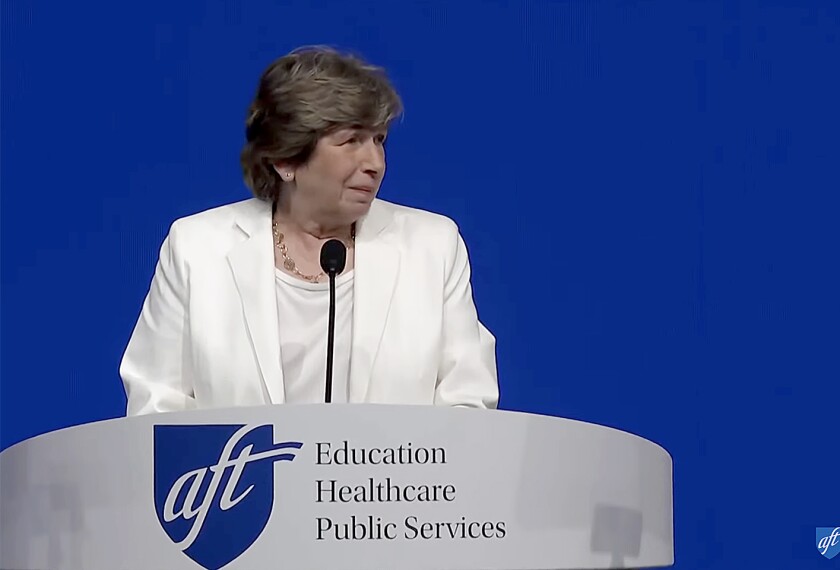Texas educators have drafted new K-12 social studies standards for the state, and they—and the state education board members who will vote on them—expect that the U.S. history strand could be contentious.
Texas board members have a reputation for being polarized ideologically. Revisions of standards for both science and English-language arts in recent years have proved to be fractious. (“Texas Board Feud Stirs Up Legislators,” April 29, 2009.)
What the state incorporates into its standards can have nationwide significance because publishers often look to Texas, as well as California—the two biggest adoption states—when writing textbooks.
“We will have a lively debate—I don’t know if it will be as divisive as some of those were,” said Gail A. Lowe, the chairwoman of the state board of education. She said its discussion last month focused mostly on the U.S. history portion of the overall social studies standards. “I think that’s what people think of when they think of the history we teach in schools,” she added.
Board members discussed in July how they want the founding documents of the United States, such as the Federalist Papers and Declaration of Independence, to play a prominent role in the standards, she said.
Even before the new standards were drafted, a wide range of views on what should be in them were expressed by six people considered to be experts in social studies who were appointed by board members to submit written recommendations on what changes should be made. Some people questioned whether all the experts had the credentials to judge social studies standards.
Peter Marshall, the president of Peter Marshall Ministries, for instance, said he objected to a 5th grade “citizenship” standard that called for students to be able to identify Cesar Chavez, a Latino civil rights and labor leader; and Benjamin Franklin as people who modeled active participation in U.S. democracy. Mr. Marshall wrote, “To have Cesar Chavez listed next to Ben Franklin is ludicrous. Chavez is hardly the kind of role model that ought to be held up to our children as someone worthy of emulation.”
At the same time, Jesus Francisco de la Teja, a history professor at Texas State University-San Marcos, recommended that Chavez be given more play in the standards. De la Teja suggested that Chavez be added to a list of historical figures in one particular standard “who have influenced the community, state, and nation.”
Three members of the writing teams for the social studies standards said they carefully considered the views of the board-appointed experts.
“We really worked to take into account all points of view without dumbing down our standards. We tried to compromise as best we could,” said Judy Brodigan, a retired teacher and curriculum director for the Lewisville Independent School District, in The Colony, Texas, which has 50,000 students, and the president of the Texas Council for the Social Studies. She is on the team revising 5th grade social studies standards.
Ms. Brodigan said Cesar Chavez was not removed from the standards. Her group added “Founding Fathers” to the 5th grade standards because one of the experts had pointed out that the phrase was included only in the secondary school standards and not in the ones for the elementary grades. In addition, she said, her group added William Bradford and John Adams to the document at the recommendation of commenters.
Weighing Gravitas
Members of the writing teams said they debated how much importance to give various historical figures. They used the word “include” in the standards to mark a historical person students would be required to learn about and the phrase “such as” to mark someone teachers could choose to mention in their lessons, without requiring it.

In U.S. history standards for high school, typically taught in the second half of 11th grade, Bill Gates, Sam Walton, and Oprah Winfrey get a “such as,” while Upton Sinclair, Susan B. Anthony, Ida B. Wells, and W.E.B. DuBois get an “including.”
Standards are important because “you want to have some order out of the chaos,” said Bronwen Choate, a world history teacher at Graham High School in Graham, Texas, who is on the high school writing team. “There are the non-negotiables that you have to cover.”
Her team made an effort, she said, to take into account the ethnic makeup of Texas and “show more varied viewpoints than the white male viewpoint.” She said her group tried to reach a consensus on what to add or remove, and if someone disagreed, he or she could include a comment in the draft.
Deborah Pennington, the social studies coordinator for the 49,000-student Conroe Independent School District, in Conroe, Texas, said she believes the writing team for U.S. history improved the standards in a number of ways.
“We streamlined, summarized, and developed concepts,” she said. “Concepts are important, so that they understand republicanism and democracy, that they understand what it is to be an American. They don’t need to be bogged down with memorizing dates.”
The next step, Ms. Lowe said, is for the state board to hear public testimony on the standards in September. A final vote is expected in March.




